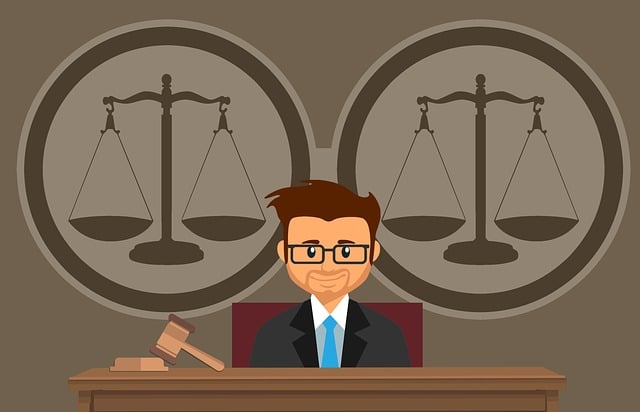Criminal defense attorneys contribute beyond legal representation by employing mediation strategies for property disagreements as a collaborative alternative to costly trials. They play a crucial role in resolving white-collar crimes, leveraging their expertise in financial systems. Mediation, historically rooted in community elders' practices and now structured under common law, is mandated or encouraged in many jurisdictions to avoid lengthy trials. This approach offers favorable outcomes at reduced costs, with a neutral third-party mediator facilitating open communication between disputing parties. Criminal defense attorneys use mediation to navigate complex property disputes, benefit clients, and ease pressure on the judicial system, showcasing its significance as an alternative to litigation.
Criminal Defense Attorneys play a vital role in our justice system, advocating for individuals facing criminal charges. Beyond their trial work, these attorneys are increasingly utilizing mediation as a powerful tool in property dispute resolution. This article explores the intersection of criminal defense and mediation, focusing on strategies that blend legal expertise with conflict resolution skills. We delve into the benefits of mediation for property disagreements, offering real-world examples and practical tips for attorneys looking to employ these effective mediation strategies.
- Understanding Criminal Defense Attorneys: Their Role and Responsibilities
- The Evolution of Mediation in Property Disputes: A Historical Perspective
- Benefits of Mediation for Property Disagreements: An Overview
- Effective Mediation Strategies for Criminal Defense Attorneys
- Real-World Applications: Successful Mediation Cases in Property Law
Understanding Criminal Defense Attorneys: Their Role and Responsibilities

Criminal Defense Attorneys play a pivotal role in our justice system, acting as advocates for individuals facing criminal charges. Their primary responsibility is to ensure that their clients’ rights are protected throughout the legal process. This includes providing legal counsel, crafting robust defenses, and representing them in court. From challenging evidence to negotiating plea deals or advocating for alternative dispute resolution methods like mediation, these attorneys strive to achieve the best possible outcome for their clients.
Beyond their direct representation, Criminal Defense Attorneys contribute significantly to the broader philanthropic and political communities through their expertise in navigating complex legal matters. They often engage in discussions around mediation strategies for property disagreements, promoting alternative solutions that can be more efficient and cost-effective than traditional jury trials. Moreover, they are crucial in defending against white collar and economic crimes, which require a deep understanding of financial systems and regulatory frameworks to mount effective defenses.
The Evolution of Mediation in Property Disputes: A Historical Perspective

The concept of mediation as a resolution method for property disputes has evolved significantly over time. Historically, legal battles over land and real estate were often lengthy and costly, with winners and losers determined by the strength of legal arguments and evidence. However, the rise of alternative dispute resolution (ADR) methods, including mediation, offered a more collaborative approach to resolving these conflicts. Mediation strategies for property disagreements have gained traction as a more efficient and cost-effective way to navigate complex legal territories.
This shift towards mediation can be traced back to ancient cultures where community elders often acted as mediators, facilitating agreements between disputing parties. Over centuries, these informal practices evolved into structured mediation processes, especially with the rise of common law. Today, many jurisdictions mandate or encourage mediation in property disputes, aiming for a complete dismissal of all charges and avoiding the need for lengthy trials and potential indictments. This historical evolution reflects a broader societal move towards more respectful, less adversarial methods of conflict resolution, ensuring that business relationships remain intact and disputes are resolved amicably.
Benefits of Mediation for Property Disagreements: An Overview

Mediation offers a compelling alternative to traditional litigation for resolving property disagreements, particularly in criminal defense cases where conflicts may arise between individuals or entities. By employing mediation strategies for property disputes, parties can navigate complex issues outside of court, often leading to more favorable outcomes and significantly reducing legal costs.
This process involves a neutral third-party mediator who facilitates open communication between disputing parties. Unlike jury trials, which can be lengthy and emotionally draining, mediation provides an opportunity for direct engagement and negotiation. The mediator assists in exploring various options, considering all stages of the investigative and enforcement process, and finding mutually acceptable solutions. This approach not only saves time but also fosters a cooperative environment, ensuring that the best interests of all clients are served, including those represented by criminal defense attorneys.
Effective Mediation Strategies for Criminal Defense Attorneys

In the realm of criminal defense, mediation can serve as a powerful tool for resolving property disagreements outside of court. Effective Mediation Strategies for Criminal Defense Attorneys involve navigating complex situations with skill and empathy. By fostering open communication between all parties, attorneys can help resolve disputes related to white-collar and economic crimes, ensuring fair outcomes that satisfy both the client’s interests and the needs of the philanthropic and political communities.
Successful mediation requires a nuanced understanding of legal principles while recognizing the human element at play. Criminal defense attorneys should be equipped to address not just the respective business aspects of the dispute but also the emotional and psychological impacts on all involved. This holistic approach enhances the chances of reaching mutually agreeable solutions, ultimately reducing the burden on both the court system and the individuals affected by these complex crimes.
Real-World Applications: Successful Mediation Cases in Property Law

In the realm of property law, criminal defense attorneys often find themselves at the forefront of resolving complex disputes through innovative mediation strategies. Successful mediation cases in this area demonstrate the invaluable role these professionals play in facilitating negotiations between conflicting parties. By employing tailored approaches, lawyers adeptly navigate the intricate web of property disagreements, ensuring fair outcomes for their clients.
Mediation Strategies for Property Disagreements prove particularly effective in addressing a wide range of issues, from boundary disputes to ownership conflicts. Criminal defense attorneys, with their expertise and negotiating skills, are well-equipped to represent both corporate and individual clients, securing favorable resolutions that stand the test of time. Their adeptness in this domain highlights the versatility and significance of mediation as a powerful alternative to traditional litigation, especially in cases involving sensitive real estate matters and white-collar defense.
Criminal defense attorneys play a pivotal role in navigating complex legal scenarios, and integrating mediation strategies into their practice can be transformative. By embracing the benefits of mediation for property disagreements, these attorneys not only facilitate more efficient dispute resolution but also contribute to fostering cooperative relationships between parties. Effective mediation strategies, as highlighted in this article, empower criminal defense lawyers to successfully resolve property disputes outside of court, providing a cost-effective and emotionally beneficial alternative for all involved.






